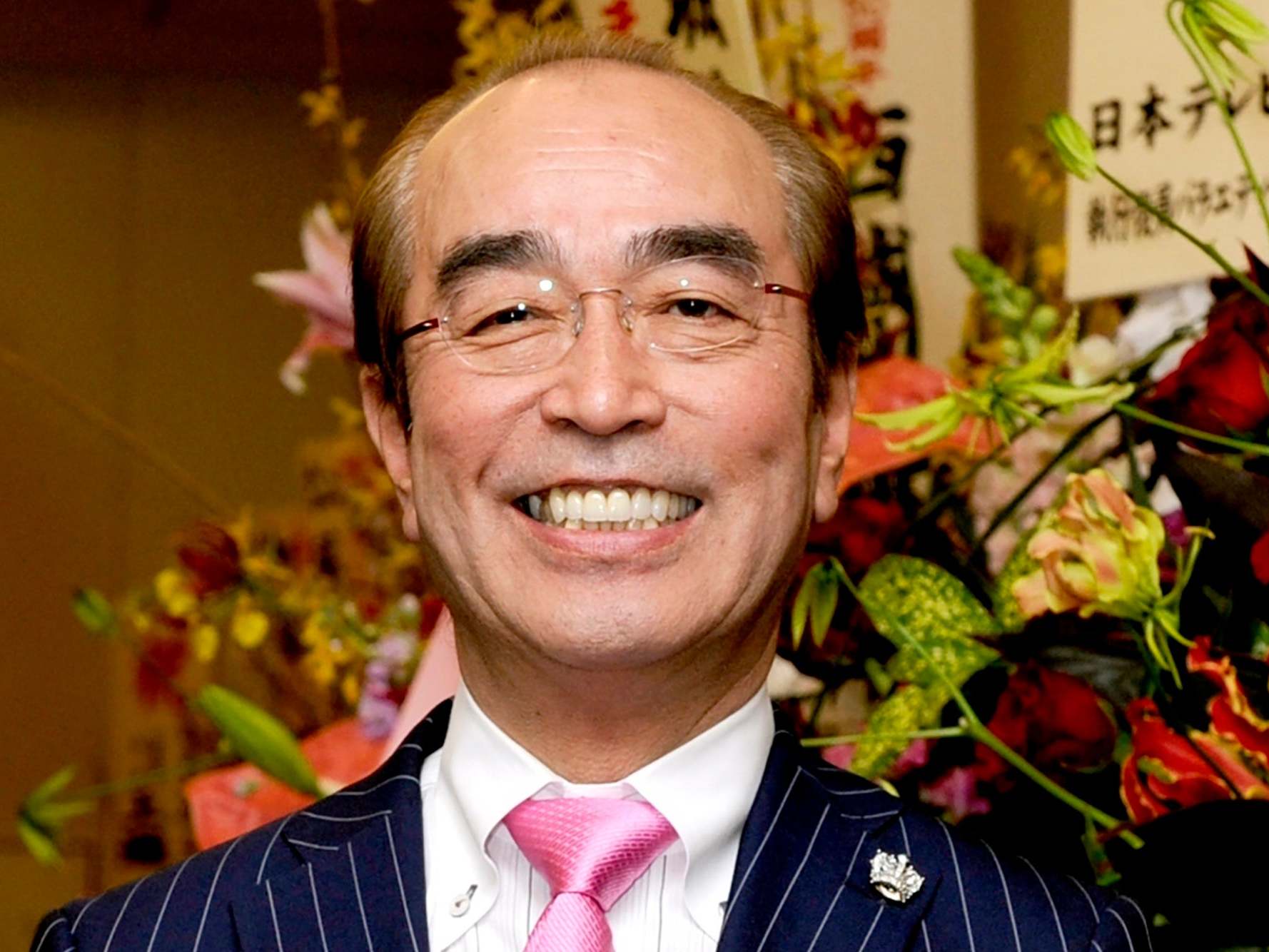Ken Shimura: Comedian whose slapstick characters and sketches made him a household name in Japan
He was a fixture of the nation’s TV schedules in the 1970s and 1980s

Your support helps us to tell the story
From reproductive rights to climate change to Big Tech, The Independent is on the ground when the story is developing. Whether it's investigating the financials of Elon Musk's pro-Trump PAC or producing our latest documentary, 'The A Word', which shines a light on the American women fighting for reproductive rights, we know how important it is to parse out the facts from the messaging.
At such a critical moment in US history, we need reporters on the ground. Your donation allows us to keep sending journalists to speak to both sides of the story.
The Independent is trusted by Americans across the entire political spectrum. And unlike many other quality news outlets, we choose not to lock Americans out of our reporting and analysis with paywalls. We believe quality journalism should be available to everyone, paid for by those who can afford it.
Your support makes all the difference.The comedian Ken Shimura, who has died aged 70 after contracting coronavirus, must have tried thousands of facial expressions over his four-decade career. Sometimes referred to as the Japanese Robin Williams, Shimura was a household name in his country, if lesser known internationally.
During the 1970s and 1980s he starred in the Saturday night variety TV show Hachiji Dayo! Zen’inshugo! (“It’s 8 o’clock! Everybody Come on Out!”), along with his comedy group the Drifters.
He was best known for the character Baka Tono-sama, the foolish king, which allowed Shimura to satirise people in positions of power such as the heads of yakuza gangs, CEOs, family heads, school principals or politicians. This persona would go on to inspire a subsequent TV show and even a video game.
His slapstick brand of humour, influenced by Charlie Chaplin and Jerry Lewis, was often based on absurd and sometimes violent situations, to the dismay of some viewing parents. His easy-to-understand gags were part of the appeal for children watching, but in recent years his locker-room portrayal of women as sexualised objects attracted criticism.
Ken Shimura was born Yasunori Shimura in Higashimurayama, a city located in the western portion of Tokyo Metropolis in 1950. His father was a Judo instructor. Shimura remembered his father as a stern professor who was enthralled with TV comedy shows, inspiring him to become a comedian.
Just before graduating from high school in 1968, he became the assistant of a legendary comic who headed the Drifters, a popular rock band turned comedy act who had opened for The Beatles when they came to Japan in 1966. Shimura served as an apprentice for five years and joined the group in 1974, replacing one of its departing members. The Drifters appeared every week in Hachiji Dayo, which had the highest ratings of any programme in its time.
For the show he created memorable characters and sketches including the Moustache Dance, for which the group dressed as disco penguins in tuxes and bushy moustaches while pulling off some vaudevillian balancing tricks.
The show was cancelled in 1985 and the group disbanded. The following year he launched two TV shows: one, Ken Shimura and the Dim-Witted Lord, poked fun at lazy bosses; the other was Ken Shimura Daijoubuda, which aired from 1987 to 1993 and satirised modern Japanese society.
He made frequent TV appearances as star and presenter over the following decades and starred in Railroad Man, a 1999 film by director Yasuo Furuhata.
In 2006 he formed and led his own comedy theatre, Shimurakon (Shimura Spirit) and by the mid-2000s he became known by yet another generation of viewers for his weekly primetime animal show, The Shimura Zoo, which featured dogs, monkeys and other critters.
Shimura was due to represent his country as a torchrunner in the 2020 Tokyo Summer Olympic Games before these were postponed. He was also lined up to act in his first-ever feature starring role in the comedy God of Cinema by director Yoji Yamada before the production was cancelled due to the pandemic.
He is survived by his two older brothers.
Ken Shimura, comedian, born 20 February 1950, died 29 March 2020
Join our commenting forum
Join thought-provoking conversations, follow other Independent readers and see their replies
Comments